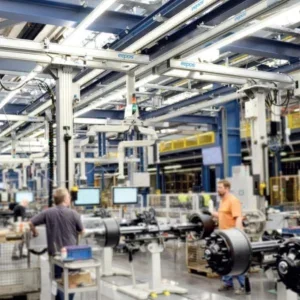How much technology do we really need? The simple answer is that we each have our own level of need, which may be defined as a function of how much we can afford, or are willing, to spend and what payback can be expected, either financially or in terms of quality of life enhancements.
In the context of factory machinery and materials handling equipment, any investment in technology is justifiable if it shows a good, or even modest, financial return – or if significant safety improvements result. But an ever increasing range of sophisticated features and possibilities continue to be opened up as further technological advances are made, particularly in the field of electronics. Are all the new features added on by crane and hoist manufacturers solely related to safety or efficiency enhancement? Performance improvements are one thing, but is there a tendency to add gadgets and gizmos just to increase the saleability of the product? Could this industry stray down the path of unnecessary improvements that are characterised by the electric can opener and the electric pencil sharpener? This may sound like merely the voice of resistance to change, but there are many users who neither need nor want complex technology. Mechanical engineering has served them well; they understand the technology. They may not be ready for a switch to electronics. The salesman offering a simple solution will always find a market for his product.
The challenge for the manufacturers is to demonstrate beyond doubt that each step change in technology produces a step change in productivity and not simply a greater maintenance burden which can only be executed by the manufacturer’s own representatives under a term contract.






